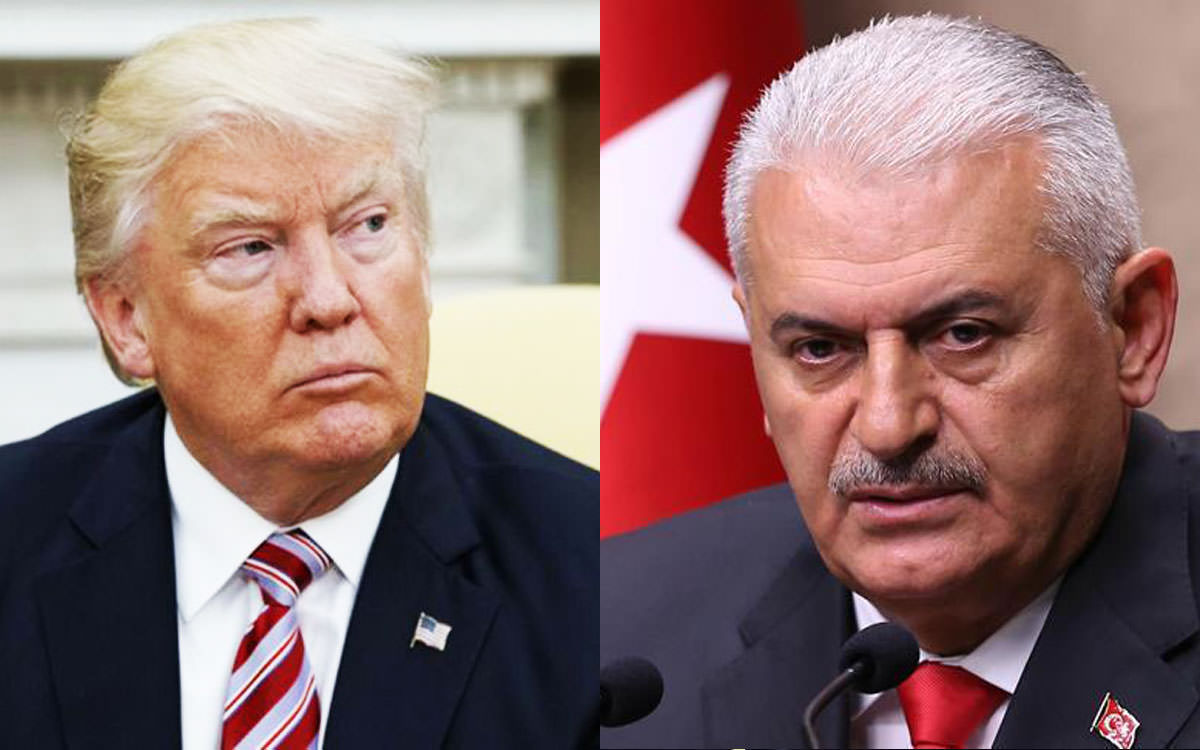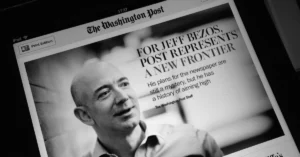An economic tussle between the US and Turkey has heightened over the past few months. Both countries are continuously imposing sanctions to paralyze each other economically. But why they are doing so? First of all, we have to keep in view the main reasons behind this tussle.
This tussle started after failed coup attempt by the Turkish Army on July 15, 2016 on which, a week after, Recep Tayyip Erdogan blamed US-based cleric Fethullah Gulen for failed bloody coup attempt to topple Erdogan’s government and behind this failed coup attempt for Marshall Law, Gulen network was of intention to remove Erdogan from the way and to promote his philosophy of moderate Islam. According to Gulen, Turkey was heading backward because of Erdogan’s conventional and orthodox policies. Erdogan then accused Gulen of conspiring to overthrow him from the government by building a network and officially declared the Gulen movement a terrorist organization in 2016. Erdogan and Gulen were once allies until Gullen opened a corruption probe into Erdogan’s inner circle in 2013. Turkey’s repetitive requests for Fethullah Gulen’s extradition from the US to face trial were rejected by the US saying they need a proper evidence of Gulen’s involvement first.
Fethullah Gulen is a Turkish Preacher, imam, and writer, currently living in self-imposed exile in the United States. He is the founder of Gulen movement known as Hizmet which is 3 to 6 million strong volunteer-based movement mostly focused on education, hard work, altruism, and modesty. This movement serves in Europe, the United States, Asia, and Africa.
This rift intensified more when Andrew Brunson, an American pastor, currently living in Turkey, arrested by the Turkish government in October 2016, has taken to the court to face trials over an allegation of alleged espionage on behalf of Kurdish insurgents and Gullen network and involvement in the failed coup attempt in 2016. He was under detention of Turkish government for 600 days, almost 2 years, is now released from jail due to health issues and placed under house arrest on July 25, 2018. The US secretary of state, Mike Pompeo, welcomed Andrew Brunson’s release from prison but said it is not far enough and demanded his complete release as they have not seen any credible evidence against Mr. Brunson but Turkish authorities neglected continuous demand for Brunson’s release by American policymakers.
Donald Trump rebuked Turkish authorities over their decision for not releasing their man in his tweet and said, “this is a total disgrace that Turkey will not release a respected American pastor, Andrew Brunson, from prison. He has been held hostage far too long. Erdogan should do something to free this wonderful Christian husband and father. He has done nothing wrong and his family needs him.” Turkish prosecutors are seeking a maximum prison sentence of 35 years for the pastor and the court has also imposed a travel ban on him.
The US’s Vice President, Mike Pence in response to this, threatened Turkey in his interview and said, “on behalf of the United States of America, release pastor Andrew Brunson now or be prepared to face the consequences.” Trump also said I thought Ankara and Washington had a deal that if Washington will help in the release of Turkish citizen in Israel on behalf of Ankara, they will fully release the pastor. Trump claimed, he urged the Israeli Prime Minister, Benjamin Netanyahu for the release of a Turkish citizen. However, Israel had even released Turkish citizen named Ebru Ozkan, on whom allegations are imposed that he was involved in abetting Hamas but Turkey instead, did not keep its words and moved the pastor to house arrest. Not fair. Not right.
In retaliation to Turkey’s betrayal, Trump administration levied sanctions on two Turkish ministers (Minister of Justice, Abdulhamit Gul and Minister of Interior, Suleyman Soylu) over propaganda on Andrew Brunson, and also banned their entry into the US and made their assets even frozen to suppress Turkish government on August 1, 2018. In addition to this, Trump further reacted in ire and said, we are cutting back on Turkey and announced a doubling of tariffs on Turkey on August 10, 2018. He said in his tweet, “I have just authorized a doubling of tariffs on steel and aluminum with respect to Turkey as their currency, the Turkish Lira, slides rapidly downward against our very strong dollar. Aluminum will now be 20% and steel 50%. Our relations with Turkey are not good at this time.” He did not care much about that Turkey is their NATO ally. Treasury secretary, Steven Mnuchin said, Turkey has “not proven to be a good friend” and we are ready to slap Turkey with more sanctions if President Recep Tayyip Erdogan refuses the quick release of an American pastor on August 16, 2018.
In reciprocation to the US’s operations, Turkey took immediate steps by imposing heavy tariffs on products imported from the United States including cars, alcohol, and tobacco also on rice, nuts, cosmetics, paper, machines etc. Turkey placed 140% on alcohol, 120% on cars and 60% on tobacco and slaps sanctions on 2 US officials i.e., minister of Interior and Minister of Justice. Banned their entry into Turkey and had also frozen their assets. Turkey’s President Recep Tayyip Erdogan said in a press conference, “our nation will boycott U.S. electronic goods. We will stop bringing iPhone. He said, if they have their iPhone, we have South Korea’s Samsung as an alternative. In our own country, we have a Vestel.”
Supporters were strongly fascinated by Erdogan’s statement that “don’t forget, if they have their dollars, we have our people, our God. We are working hard. Look at what we were 16 years ago and look at us now.” As their deliberated trade tensions are at its peak, Turkish Lira shattered badly against the US’s mounting dollar and tumbled up to 5%. Investors started to pull out their money from banks. Such withdrawals have also hurt other currencies. Argentine peso and Indian rupee touched their weakest level against the US dollar. Turkey’s economy is suffering severely due to escalating sanctions by the US and is facing a currency crisis. Loss of $12 billion or more is expected to both countries amid their crumbling relations. According to the International Monetary Fund (IMF), it is also expected that these actions by the US can cause a loss of more than $500 billion to the whole world. It seemed like the only way for Turkey to get out of this crisis is by securing the help of IMF’s rescue bailout but Turkey’s Finance Minister Berat Albayrak said in a conference, there is no need to be panic, we will easily overcome this economic crisis and will emerge even stronger than before. He is taking its investors in confidence and also talks to France and Germany. Turkey is insistent that no matter what happens, they will not seek the help of IMF. President Recep Tayyip Erdogan and French President Emmanuelle Macron have agreed to improve bilateral relations as Turkey is passing through the dire strait. Turkey’s Finance Minister Berat Albayrak engaged with German Chancellor Angela Merkel and have agreed to meet in Berlin to take steps for further enhancement of economic cooperation.
Turkish Lira was up 4% against US dollar following the conference call and reassuring words from French President Macron and Germany’s Chancellor Merkel. Qatar pledged to invest $15 billion in Turkey’s financial sector which will also help to stabilize and bolster their economy. Pakistan, Iran, and Russia have also announced to help Turkey in their impassable time and deplored the US’s sanction on Turkey. Russian foreign minister calls US sanctions illegitimate. He further added that they are devising to end the US dollar’s dominance and envisaging to trade with Turkey and other countries as an alternative currency. Turkey’s president Erdogan also denied to stop trading with Iran after the cancellation of a nuclear deal between Iran and America and is likely thinking forward to purchase Russian Air Defense System if needed which America does not like.
On August 20, 2018, some assailants opened fire on the US Embassy in the capital Ankara. It has been suspected that this attack was carried out as a result of increased tensions between two NATO allies. Turkish Lira plunged further against the dollar after their spat with the United States on August 29, 2018. It has lost almost more than a quarter of its value. On the same day, Turkish media reported that Mohammad Ahmad, known as the spiritual son of Andrew Brunson, has been accused of being the link between the pastor and the Gulenist terror group. As on August 17, 2018, Turkish court in the province of Izmir, rejected an appeal to release Brunson, the lawyer of Brunson on August 30, 2018, has now decided that they would go to European Court of Human Rights.
The only way for both countries to reinstate their extremely disturbed relations is by reconciliation and consensus. Otherwise, the entire world would have to suffer from their delicate and shabby relationship.





